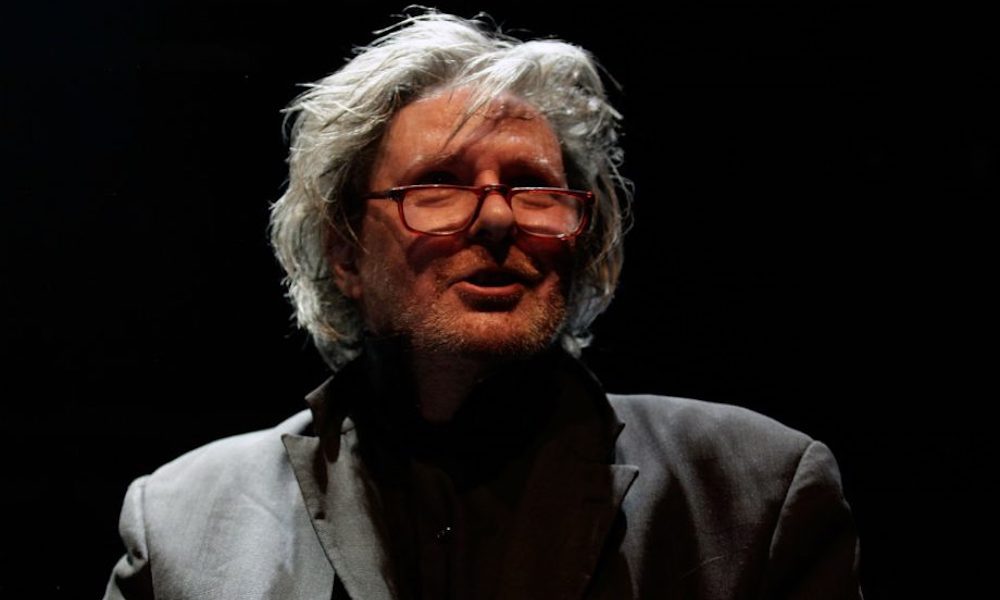LIVE REVIEW: The Glenn Branca Ensemble @ St. Vitus

Glenn Branca didn’t want people to dance to his music. “I want them to sit there and be blown away,” he once said in an interview. No one was seated at Brooklyn’s St. Vitus Bar on Sunday, where the Glenn Branca Ensemble played in tribute to the late composer, who died last year after a battle with throat cancer. But you’d be incorrect to call the crowd’s movement “dancing.” Dancing is not always an act of free-will, but it is fueled by more intention than involuntary spasms. Looking around, there was no way any of us were moving this way on purpose.
Having the ability to stand at the Glenn Branca Ensemble’s performance of The Third Ascension allowed for an entirely new interaction with Branca’s music. The event was held in conjunction with Branca’s final work—a 2016 live recording of The Third Ascension was released on Systems Neutralizers two days prior. The concert was held on what would have been Branca’s 71st birthday. Like the new record, it was made possible by his wife and longtime collaborator Reg Bloor, who has played guitar in Branca’s ensemble for years.
I’d only ever experienced Branca’s ensemble concerts sitting down. The chair felt like a safety seat on a rollercoaster, and it would have made sense if it was equipped with a metal bar to pull against your chest. Even sitting down, the music felt dangerous enough to eject you from your seat. Without this precaution, what might we be capable of? I feared (and maybe hoped) that the crowd would be whipped into a frenzy of id and alcohol, rushing the stage like a pack of feral animals.
This did not happen, likely because Glenn Branca was not conducting, and because it is no longer the 1970s. But what was particularly exciting was the potential energy threatening that it could happen at any moment. Seeing Branca’s work live is far more of a physical experience than just a sonic one. The music seems to reach from the speakers and slap you in the face, punch you in the gut, and pull out your still-beating heart Temple of Doom-style. It’s not just loud, it’s emotionally exhausting. After every song I drew a deep breath, sucking in oxygen and blasting out a big sigh. Each piece made me feel like I’d just had a long, drawn-out argument with my husband, and I don’t even have a husband.
Branca’s work, especially when played live at such extreme volumes, can at times sound like the mind tearing itself apart. There is a beautiful dissonance between the performers, very diligently reading their sheet music, and the unraveling effect their playing has on the psyche. Conductor Brendon Randall-Myers gave a spirited interpretation of Branca’s work that could be measured in ounces of sweat. The remaining ensemble followed suit, smiling widely when they weren’t grimacing from overexertion. In addition to playing The Third Ascension in its entirety, Randall-Myers led them through Branca’s 2016 Bowie eulogy “The Light (for David).”
There was almost no talking between songs, save for logistical exchanges with the sound technician during tuning breaks. It was in those minutes that Branca’s presence was especially missed. These were the moments when you could really get a glimpse of Branca as a person—a wry, mischievous, and deeply funny human being who still loved what he was doing in a way that radiated through the room. “The only reason I even bother to pay the slightest attention to this fucking world, is because I love music,” Branca once said. “I love to write music, and I want people to hear the music. Otherwise, this fucking world is an utter waste of time.” Even in his absence, that love is still palpable.

